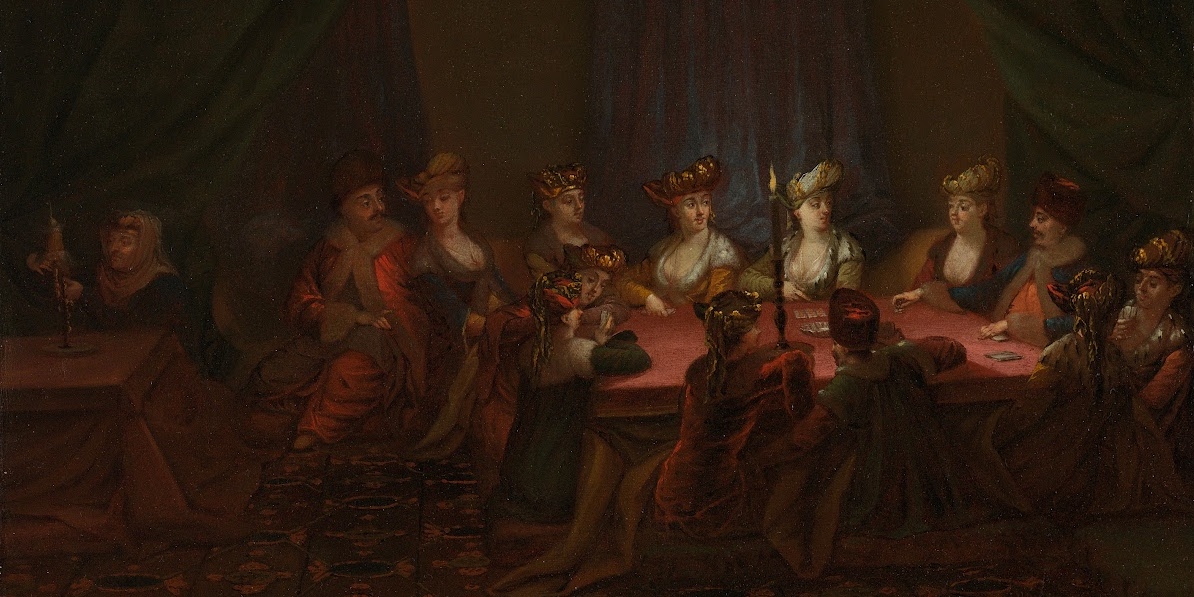Dreams in Ottoman Society, Culture, and Cosmos
Podcast Feed | iTunes | Hipcast | Soundcloud
Dreams are an essential part of the human experience but are attributed different significance in various times and places. For many Ottomans, dreams were a forum for the revelation of hidden or unseen knowledge, and dream narratives as well as their interpretations found their way into many Ottoman texts. In this podcast, Aslı Niyazioğlu explains the role of dreams within Ottoman society, focusing on dream narratives in biographical dictionaries of the early modern era, and we discuss possible changes over time in the understanding of dreams in the Ottoman world.
Stream via Soundcloud (preferred / US)
 |
Aslı Niyazioğlu is an Assistant Professor of History at Koç University in Istanbul |
 |
Chris Gratien is a PhD candidate studying the history of the modern Middle East at Georgetown University. |
 |
Nir Shafir is a PhD candidate at UCLA focusing on history of science and intellectual history of the Ottoman Empire
|
Episode No. 64
Release date: 13 August 2012
Location: Etiler, Istanbul
Editing and Production by Chris Gratien
Bibliography courtesy of Aslı Niyazioğlu
Citation: "Dreams in Ottoman Society, Culture, and Cosmos," Aslı Niyazioğlu, Chris Gratien, and Nir Shafir, Ottoman History Podcast, No. 64 (August 13, 2012) http://www.ottomanhistorypodcast.com/2012/08/dreams-in-ottoman-society-culture-and.html.
Niyazioğlu, Aslı. “Dreams, Ottoman Biography Writing, and the Halveti-Sünbüli Sheikhs of Sixteenth Century Istanbul” in Many Ways of Speaking About the Self, Middle Eastern Ego-Documents in Arabic, Persian and Turkish (14th-20th Century), Ralph Elger and Yavuz Erköse eds. (Harrassowitz, Wiesbaden: 2010): 171-185.
“Dreams of the Very Special Dead: Nevizade Atai’s (d.1635) Reasons for Composing His Mesnevis” Archivum Ottomanicum 25 (2008): 221-33.
“Aşık Çelebi’ye Rüyaların Söyledikleri” in Aşık Çelebi ve Şairler Tezkeresi Üzerine Yazılar, co-edited with Hatice Aynur, (İstanbul: Koç University Press, 2011):71-85.
Ahmet Tunç Şen "A Mirror for Princes, A Fiction for Readers: The Habname of Veysi and Dream Narratives in Ottoman Turkish Literature" Journal of Turkish Literature 8 (2011): 41-65
Cemal Kafadar “Mütereddit Bir Mutasavvıf: Üsküplü Asiye Hatun’un Rüya Defteri 1641-43” in his Kim Var İmiş Biz Burada Yoğ İken (İstanbul: Metis, 2009): 122-155.
Cornell H. Fleischer, “Secretaries’ Dreams: Augury and Angst in Ottoman Scribal Service,” in Armağan, Festschrift für Andreas Tietze, ed. Ingeborg Baldoruf and Suraiya Faroqhi (Prag: Enigma Corporation, 1994), 77-88.
Dror Zeevi, "Dream Interpretation and the Unconcious" in his Producing Desire: Changing Sexual Discourse in the Ottoman Middle East, 1500-1900 ( Berkeley, Los Angeles, London: University of California, 2006): 99-125.
Gottfried Hagen, “Dreaming Osmans: Of History and Meaning" and Özlem Felek "(Re-)Creating Image and Identity: Dreams and Visions as a Means of Murad III's Self-Fashioning" both in Özlem Felek and Alexander D. Knysh (ed.) Dreams and Visions in Islamic Societies, (Albany: State University of New York), 2012: 99-123 and 249-273.










Comments
Post a Comment
Due to an overwhelming amount of spam, we no longer read comments submitted to the blog.